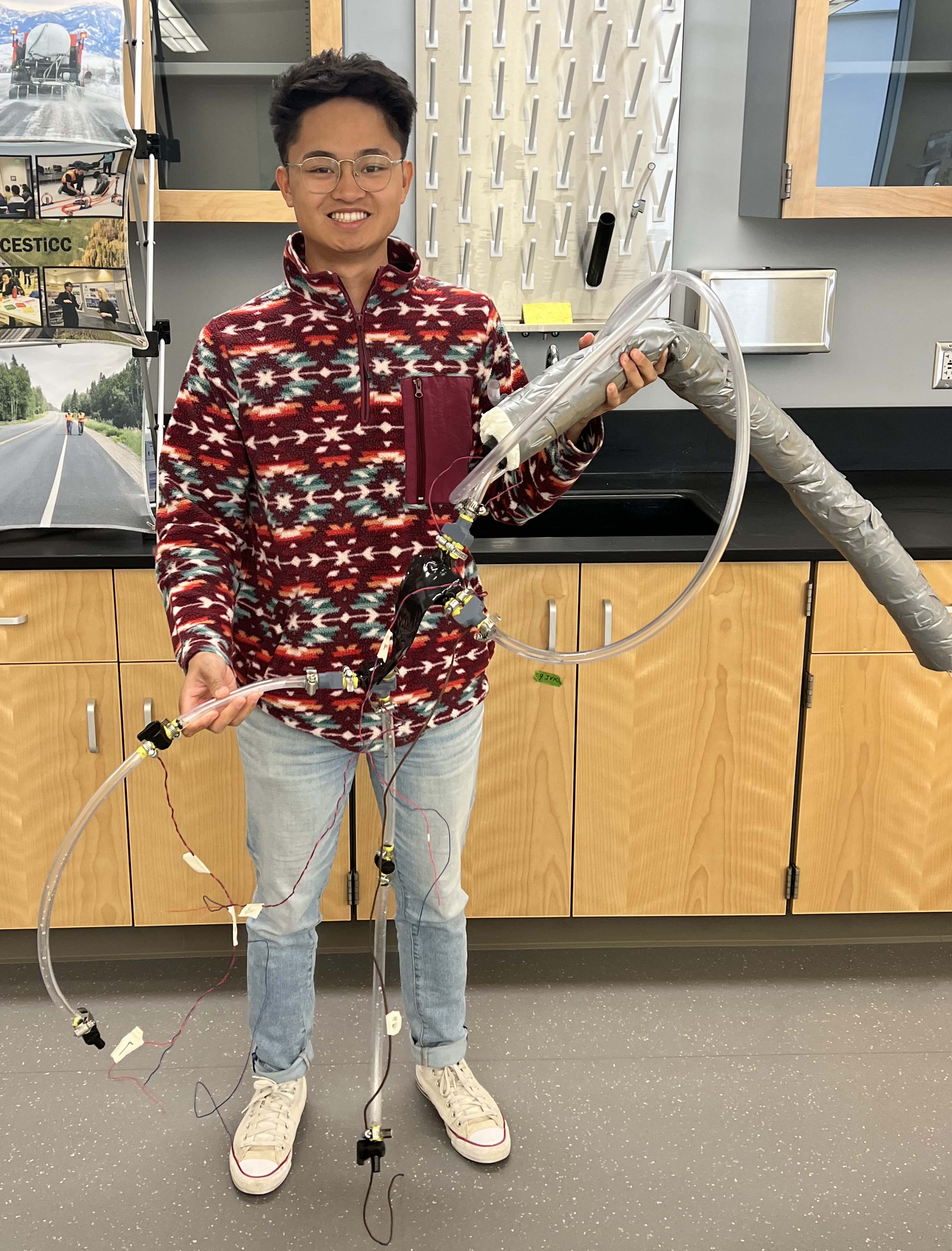New Experiences and New Prototypes Inspire AUSI Intern Osias Salem

Traditional heat exchangers in current use are almost exclusively built from metal. ACEP undergraduate intern Osias Salem is working with ACEP faculty David Denkenberger to test and develop microchannel heat exchangers that can be constructed out of polymer material.
“So far, I have really enjoyed the assembly process of the heat exchanger prototype I am building for Dr. Denkenberger,” said Salem, a third-year mechanical engineering major at UA Anchorage. “I've learned how a laser welder operates, how to clean the nozzle end of a 3D printer and a lot about heat exchangers I didn't know about before. I haven't had to dive too deep into theoretical learning just yet, but I am certainly looking forward to it.”
The idea behind polymer heat exchangers is that it would make the material/assembly cost much cheaper than traditional ones. Heat exchangers have a wide variety of applications: heating ventilation and air conditioning or HVAC, solar water pasteurizers, refrigerators, etc. An example of when a polymer microchannel heat exchanger would be useful is in a solar water pasteurizer. Solar water pasteurizers make water safe for drinking. If heat exchangers were cheaper to build and more efficient, more pasteurizers could be deployed, which could save many lives in communities where potable water is not easily accessible.
From this internship Salem has two goals. “I am hoping to apply the knowledge learned from my classes to a real-life scenario, and I am hoping to build reliable and useful connections at ACEP,” he said.
Salem says that one of the most interesting parts about being at ACEP has been what he has learned from his fellow interns and the projects that they are working on.
“While I spend most of my time in the lab assembling heat exchangers, the other interns have been modeling power systems, researching micro nuclear reactors, and exploring data on electric vehicles,” he said.
Salem hasn't had too much exposure to the energy field in Alaska besides a previous mentorship with an oil and gas engineer. “It's nice to learn about other sources of power that Alaska relies on,” he said “I'm learning a lot about renewable energy in Alaska, and I hope to learn more in the following weeks.”
While usually living in Anchorage, Alaska, Salem will be located in Fairbanks until the end of his internship in August 2022. Outside of work, Salem enjoys disc golfing, weightlifting, hiking and snowboarding.
For more information on this project, please contact David Denkenberger at ddenkenberger@alaska.edu.
The AUSI program is generously funded by a grant from the Office of Naval Research.
For more information on the AUSI program and the various projects, please contact Jeff Fisher at jfisher3@alaska.eduand visit http://ausi.alaska.edu/.
Osias Salem holds a heat exchanger prototype he is working on during his internship. Photo by Gus Lewis.


